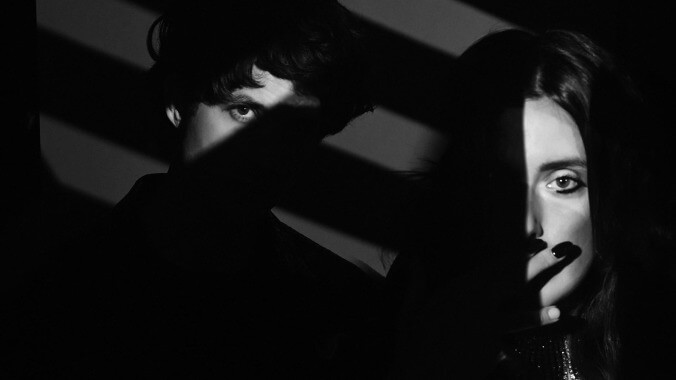Beach House spreads some of its most impressive work across the four chapters of Once Twice Melody
Despite some missteps, the band's new album proves Beach House has more up its sleeve than subdued melodies

When twinkling synths usher the listener into Once Twice Melody—both the opening track and the album of the same name—it feels like you’re entering a fairytale, sprinkled with pixie dust. But the mood quickly changes after the percussion and guitar come in and Beach House vocalist Victoria Legrand introduces a melancholic story about a woman attempting to process newfound loneliness while craving fantastical escapism. With references to Peter Pan’s Neverland, Legrand outlines the woman’s life—it was once a fairytale, but has now “gone to hell,” as she later sings.
Beach House’s music has always had a cinematic quality, and that element is expanded on Once Twice Melody. The Baltimore-based duo of Legrand and Alex Scally divided the album into four chapters, each chronicling a relationship’s dissolution. Beach House’s 2017 album, 7, featured some of the band’s darkest and most experimental tracks, and Once Twice Melody gets even more eclectic, delivering some of the most captivating work of band’s nearly two decade-long career.
The intensity of conflicting feelings that follow a lost love (despair, yearning, hope, cynicism) is intensified by the introduction of a live string ensemble, arranged by renowned composer and conductor David Campbell, who has provided strings for artists ranging from Adele to Evanescence. His additions to Once Twice Melody work in the duo’s favor: The orchestral ensemble spotlights Legrand and guitarist/keyboardist Scally’s talents, rather than hindering them.
Take “Pink Funeral,” an enchanting tune magnified by intense synths and strings. It would feel equally at home in the climactic scene of a fantasy film or in a ballet, with apt references to “swans on a starry lake” and a fairytale turned nightmare.
“New Romance,” another standout, is one of the album’s biggest-sounding tracks, led by mesmerizing synths and drums, with lyrics about rebuilding after losing your identity in a relationship: “Last night, I’m messing up / Now I feel like dressing up” and “Take my chances, new romances, eyes roll on the avenue.”
But while strings create a rich atmosphere for each song, the lyrics don’t always conjure the same; they lack the gut-punch frisson needed for what’s essentially a concept album about a breakup. Though the words give snapshots to this story of heartbreak, the arrangements establish the tone for the narrative, setting the emotional weight behind the songs.
 Keep scrolling for more great stories.
Keep scrolling for more great stories.
